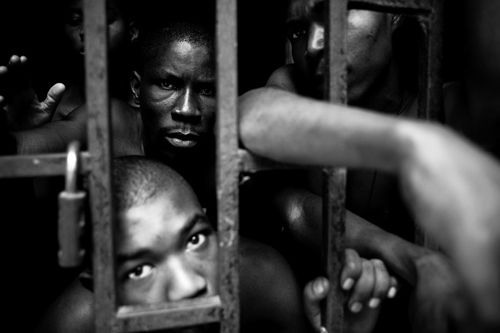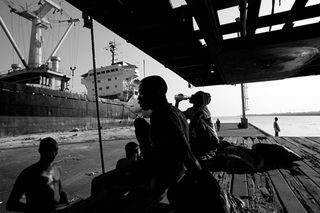by Marco Vernaschi, for the Pulitzer Center
(Editor's note: This is the sixth of eight dispatches, recounting events surrounding the double assassinations of Guinea Bissau's president and army chief of staff last March and the country's emergence as a 'narco state.')
Organized crime and cement often go together, but in Guinea Bissau this happens in an untraditional way. The cement importing and sales company, SOMEC, was salvaged by Colombian Juan Pablo Camacho, a convicted drug trafficker who spent five years in prison in Miami on drug trafficking charges. He and his partner, Luis Fernando Ortega Mejia, bought the company that had been ruined in 1998 by Guinea Bissau's civil war.
Camacho and Mejia were both detained in September 2006 in the biggest bust the country had ever seen. The Judiciary Police seized firearms, ammunition, grenades, laptops, 674 kilos of cocaine and $39 million in various currencies. Unusual, for a cement company.
The Colombians, however, were able to walk away. The cocaine and money were stored in the treasury vaults, for safekeeping. The next day, the army seized both the drugs and the cash, and the evidence vanished. No evidence, no case. The Colombians were freed, thanks to Carlos Lopes Correira and Armando Mango, the same lawyers who defended Augusto Bliri.
Camacho denied every accusation and said that his wife and five children, who were still in Bogotá, would soon arrive in Bissau and that he planned to live there for the next few years. The Colombians are said to have left the country since, skipping bail, but the suspicion is that they still trade drugs, through a local network.



